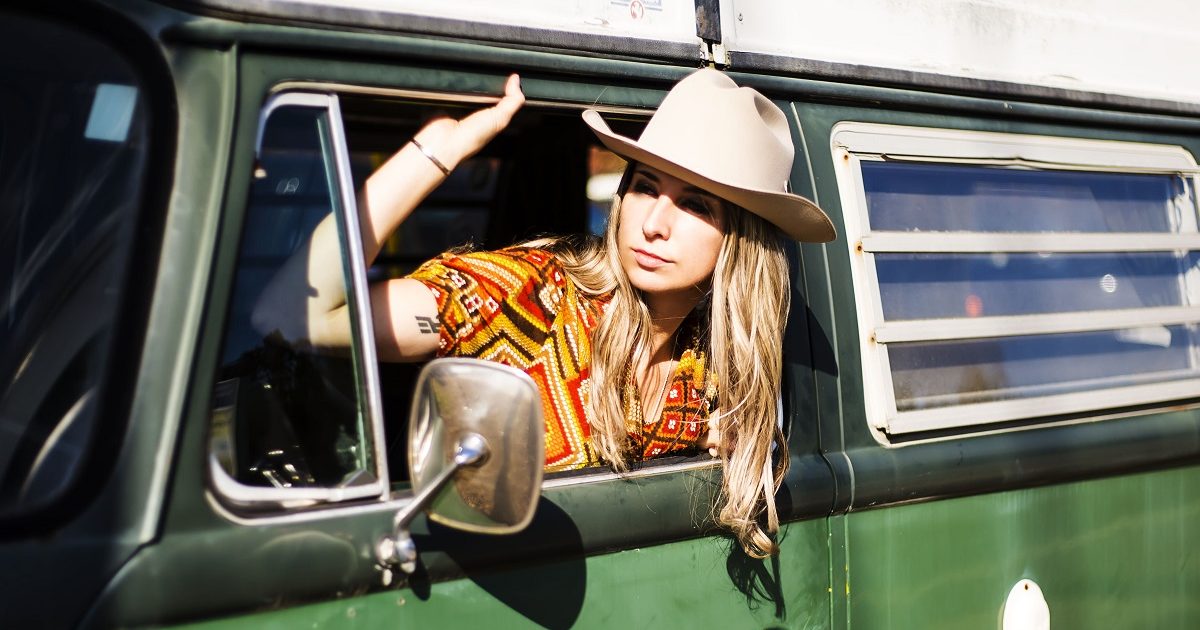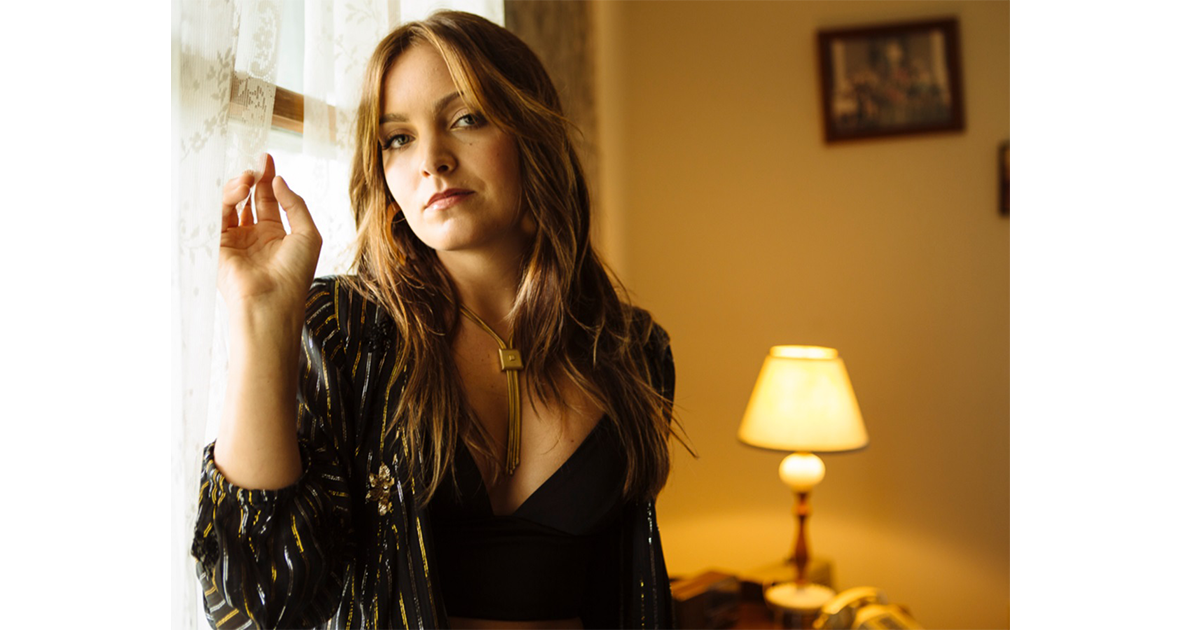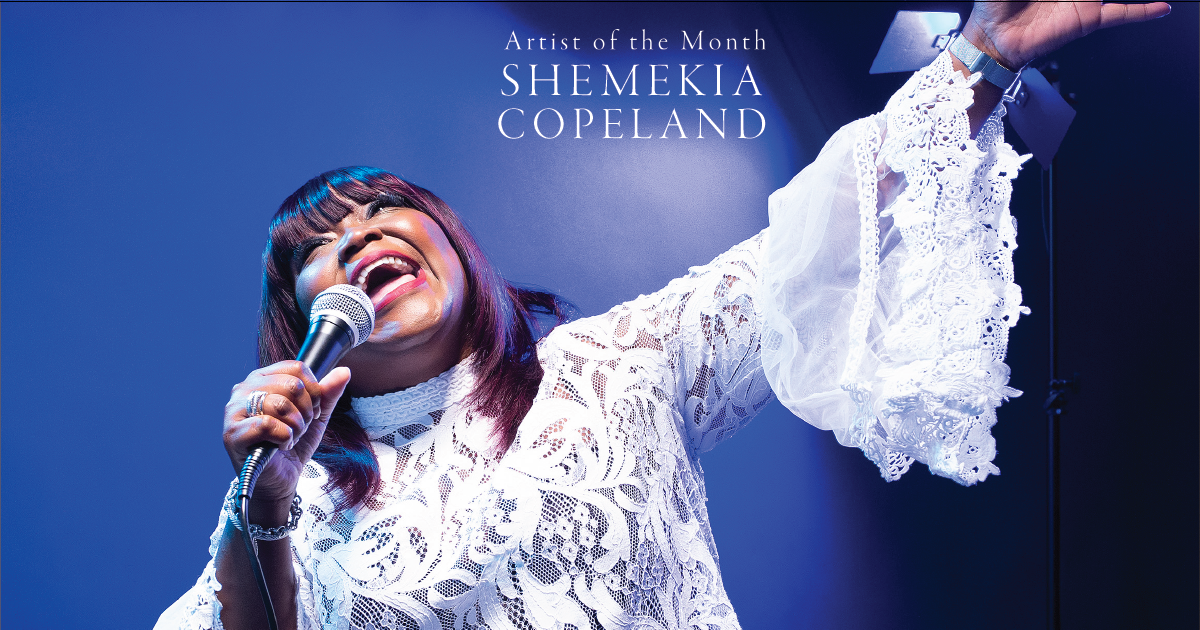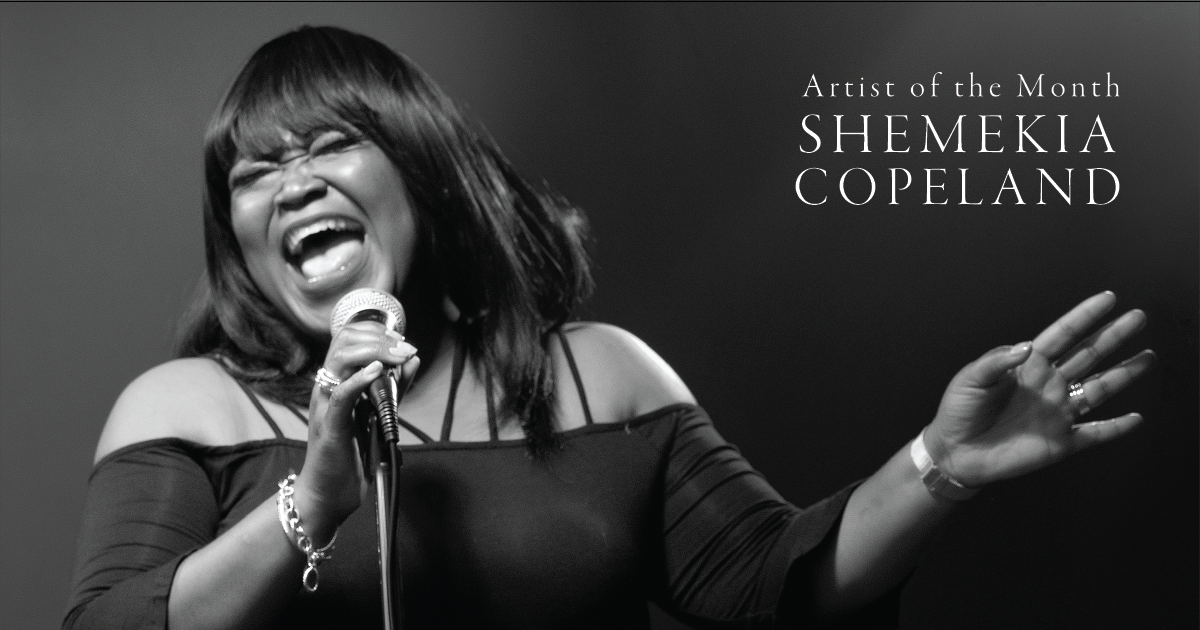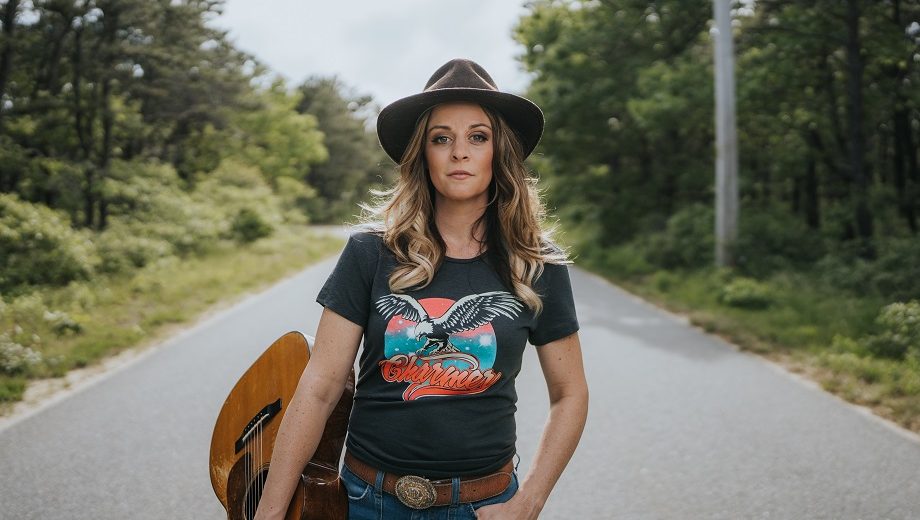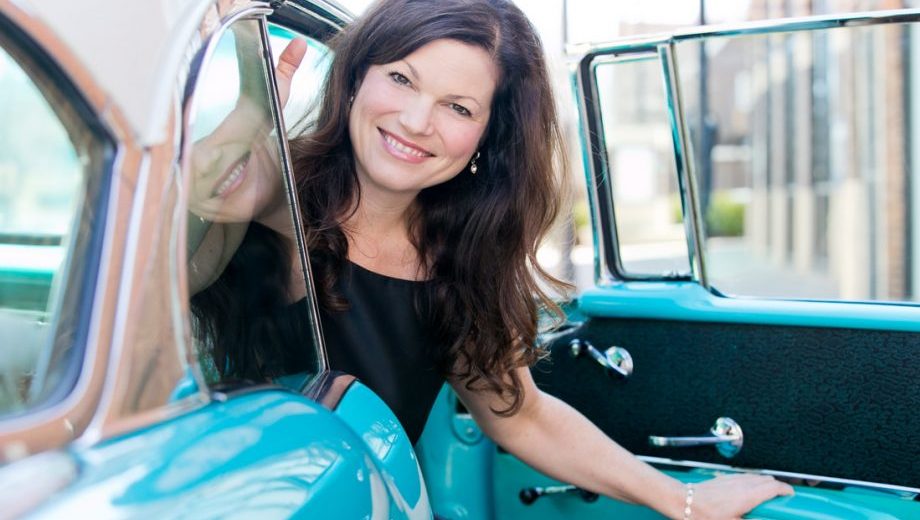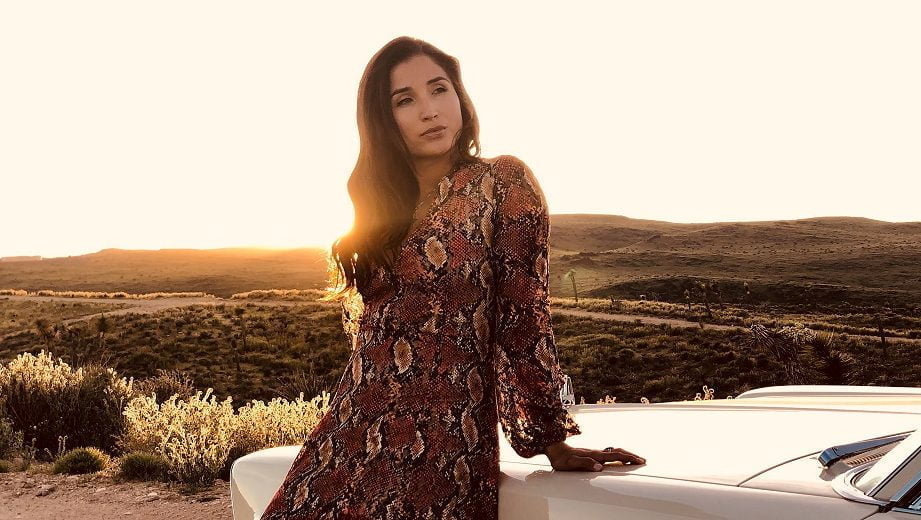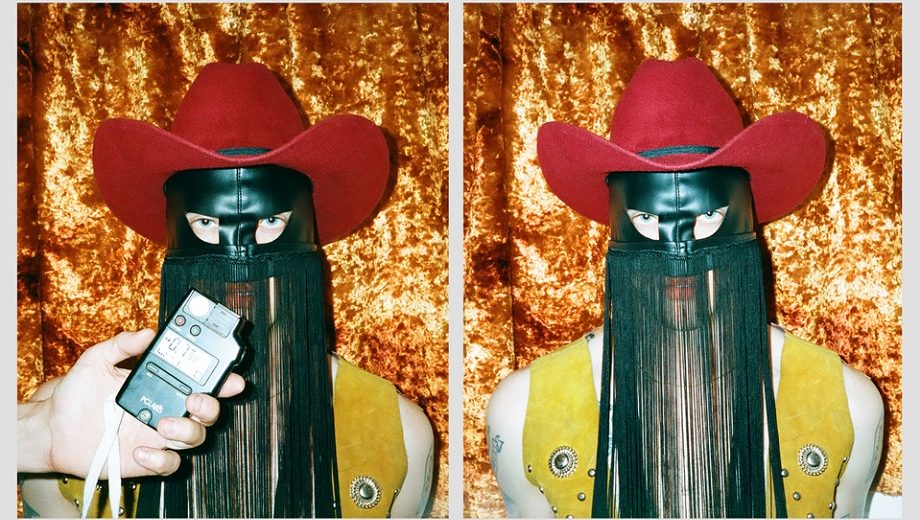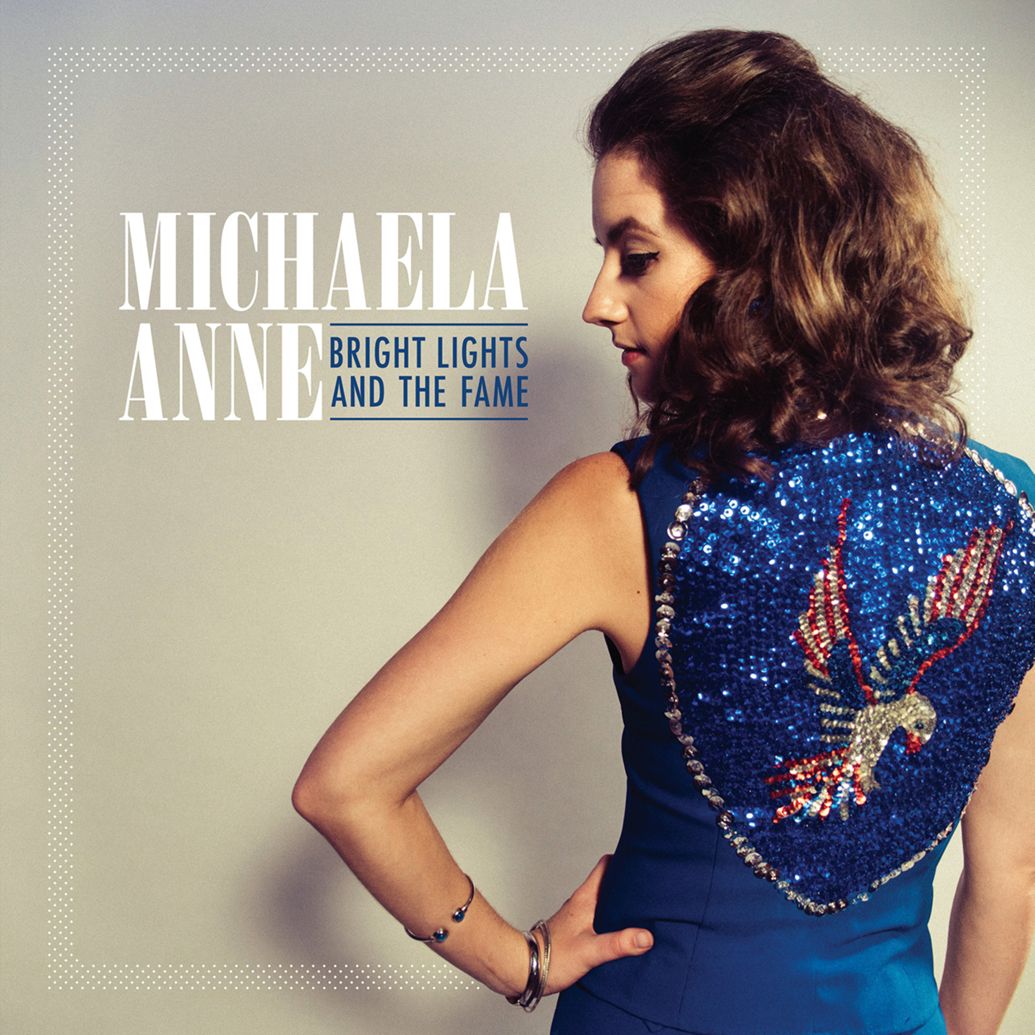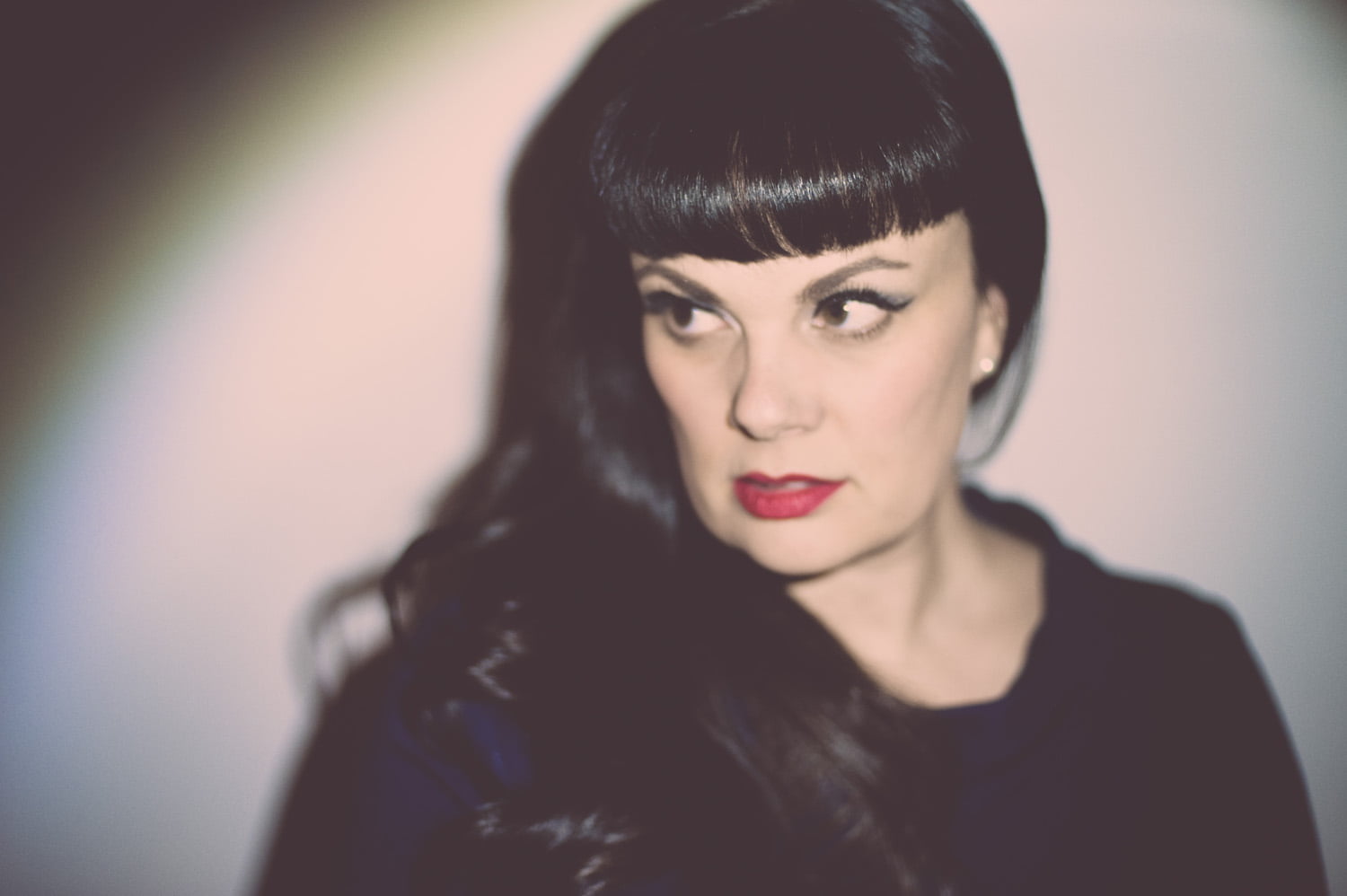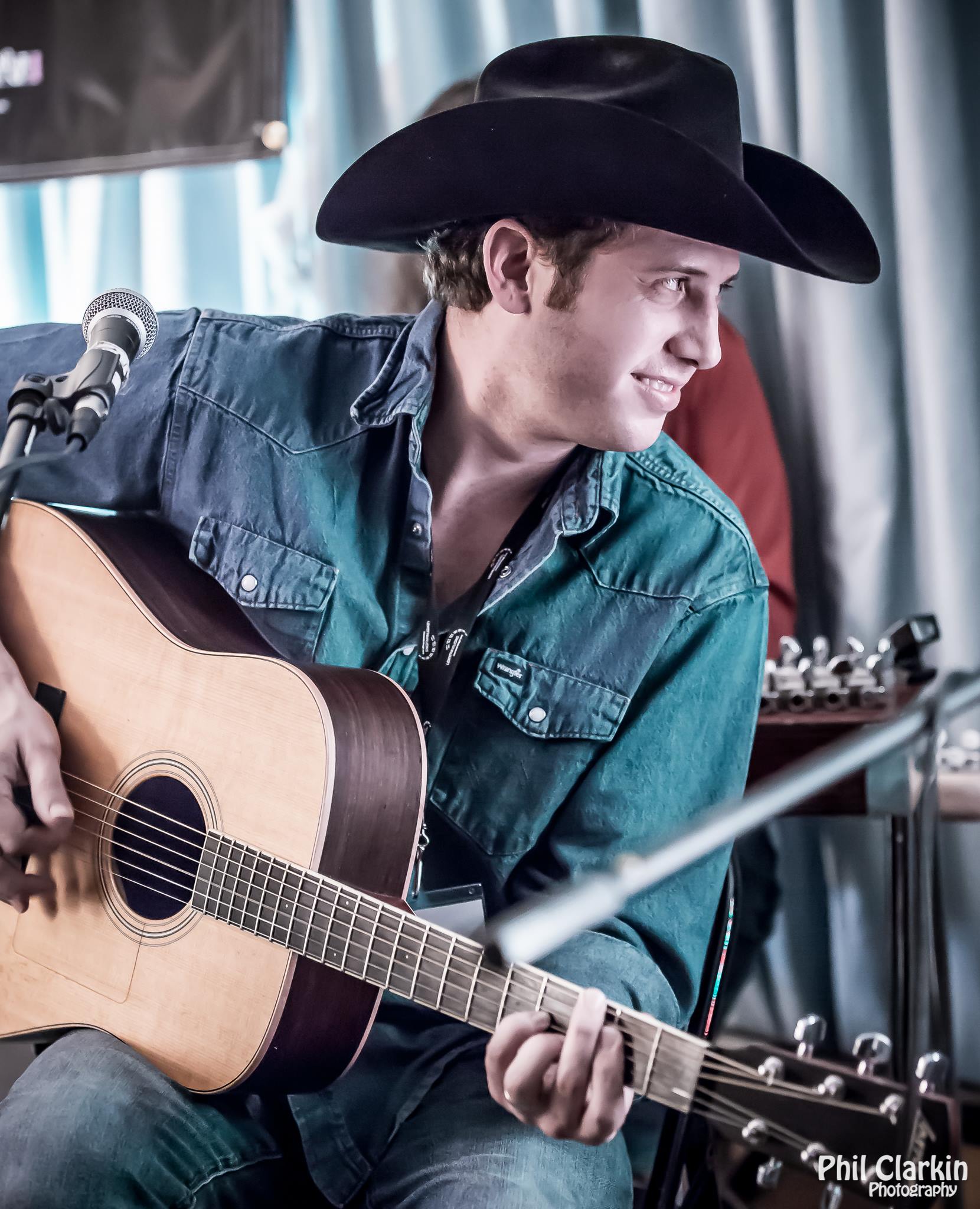The Venn diagram crossing "traditional musicians poised for breakout in 2016" and "based in New Zealand" yields, unsurprisingly, only one name: Tami Neilson. Gifted with a voice that summons Patsy Cline's ghost, hair high enough to make Dolly proud, and a style lifted straight from the Saturday night stage at the Grand Ole Opry, Neilson's most recent records — the just-released-in-Canada Dynamite and New Zealand-only Don't Be Afraid — time machine back to the era of classic country with a few sidesteps into Sun Records-style rock 'n' roll, blues, and soul.
If this all seems unlikely from a nation whose biggest musical exports have been Lorde, Crowded House, and, er, Flight of the Conchords, that's because it is. But Neilson, who has won multiple New Zealand Music Awards, as well as the prestigious APRA Silver Scroll for songwriting (in 2014, the year after Lorde won), has paid her dues on the long, dusty trail.
Born in Canada, Neilson spent most of her tweens and teens touring relentlessly across North America as part of the Neilson Family, an old-fashioned gospel family band featuring her late father Ron, her mother Betty, herself, and two younger brothers — Jay and Todd. Having moved to New Zealand in 2007 for love and marriage, and, eventually two young sons, it's only now that Neilson is making her first steps to plug back in to her past life.
I want to start with an "Origins of Tami Neilson" question. From a young age, you were part of the Neilson Family, a touring family band. Would it be fair to say you had a nomadic youth?
We were just a pack of gypsies, really, the Neilsons. I look back now as a parent, I think, by taking their kids on the road full-time, my parents were either the bravest people I know or the craziest. But we definitely grew up on the road full-time and that was normal to me. Being in the same house with a dog and a white picket fence and the same friends your whole life, that was just so exotic to me.
Did you used to play in prisons with your family?
We did. That was when we were quite young. Mom and dad would bring us in, and Todd, my youngest brother, was probably four or five. I would have been about nine or 10. We would go in and dad would do his comedy, and he and mum would do a talk in the prison, and then we would get up and sing gospel songs as a family. I can remember my mom saying to my little brother, "Todd, when mommy and daddy are on stage, you stay with …" the Salvation Army lady or whoever had brought us in. "You don't go anywhere by yourself." And without fail they'd be onstage singing, and mom would see him get up and go up to a prisoner: "I need to go potty." She'd be mortified. So there were some heart-stopping moments on the prison performances.
Is it true there was a point where you and your brothers had to busk to earn money to survive?
Yep. In Midland, Ontario. On the main street. To make money to eat.
I know the town of Midland. It's not a music-friendly cultural hotbed. I can't see that being a gainful experience.
No, it was not gainful. But it did the trick for what we needed, at the time. At that time, we had just come off the road after a really bad management experience — we had basically lost everything due to our management and went back to my mom's hometown to lick our wounds, as a family. My dad plunged into a deep depression because he held the full weight of responsibility on his shoulders, and we all started looking for jobs. At that time, he didn't want to pick up a guitar; he didn't want to be anywhere near music because he felt that he'd failed us so abysmally. So my brothers and I went out on the main street every day and busked. Fifty bucks was a good day. We'd put it on the kitchen table and give it to mom and we'd get groceries until we could all find jobs.
If that isn't an authentic country music tale of woe, I don't know what is.
That's country. It doesn't get more country than that.
Do you have a band because of an earthquake?
That's actually not too far from the truth. I hadn't thought of it that way, but yes, I definitely have a producer [Delaney Davidson, Dynamite co-producer and part of the duo Delaney Davidson & Marlon Williams]. I was on tour when the earthquake in Christchurch hit. I knew the Eastern, who are a band from Lyttelton, and the venue we were supposed to play at was flattened. It had crumbled and caved in. There were just bits still standing and my poster was still in the window.
A few days later, I called Adam [McGrath] from the Eastern and said, "I'm supposed to be doing a show there" — of course, nobody's going to shows across the entire country because everybody's devastated by this news — and they were doing these pop-up acoustic shows. There was no power at all in the city. They're doing shows in parks around the city to boost the morale and lift the spirits of all the people who were living in mud and crumbled ruins. So I got in touch with him and said, "We're going to be in town, we've got instruments, let us know where you're playing and we'll come play with you." He texted me the details of the park they were going to be playing in, so we rolled up and I'm like, "Are we in the right place?" and then I saw this tall, skinny beautiful man with a white cowboy hat on looking like the ghost of Hank Williams. It was Marlon Williams (who has guitar and vocal credits on Dynamite), and next to him was a very serious, grumpy-looking guy with piercing blue eyes, and that was Delaney Davidson. We went to a barbecue after the show and really connected there. It's one of those things that's really burned on to your memory when it's in the midst of something so surreal.
To do the music you do in the style you do it, it's a very conscious decision. You've got a very traditional image, but it feels very authentic. How do you define the music you make?
The music side of it, it's Americana. It's not just country, it's not just blues, it's not just soul. But so many of those artists weren't. Johnny Cash, Elvis, the Staples … all of these people were just a hotbed of all of those genres.
Speaking of Johnny Cash, did you tour with him?
We opened for him at the Merritt Mountain Music Festival.
Did you get to talk to him or anything?
There's a story to that: The night before the gig, we had had a fire in our motorhome. Our motorhome caught on fire when we were driving to the gig. We had finished a gig in Kelowna, British Columbia, and got in the car to drive to the festival the next morning, so we were going to drive to Merritt that night. After a gig, if we were driving in evening, I would always change into my jammies in the motorhome to be comfy.
So we're on the road and these people are signaling to roll down the window, and we all thought that they had seen the show so we're waving back like this big happy family in the window. Dad rolls down the window and they're like, "You're on fire!" And dad's like, "Thank you, thank you." "No, you are on FIRE!" And we looked out and there was black smoke just billowing out the back of the motorhome. So we all got out and all of our clothes were ruined. Our instruments were stored underneath so there was smoke damage — they stunk, but they were still playable. All I had was my pajamas.
We rolled up to the festival the next morning, they gave us all festival t-shirts, and I opened for Johnny Cash in my pajamas and a t-shirt. So, yeah, my dad and my brother chatted with him, but I was too completely humiliated by the fact I was wearing my pajamas to talk to him. I was a teenager and you're just so concerned about being cool. I was just totally mortified. Of course now you're like, "Who cares?! Go back!" But when you're 18 and you're mortified, nothing matters except the fact I was wearing pajamas.
Is it true Roy Orbison held you as a baby?
Yes, and it actually makes me cry that I don't have the photo of it. That would be the cover of not just one album, but of every album I've ever put out. My dad was playing in the same venue as Roy and dad said, "Can I please get a photo of you with my daughter Tami?" Dad said Roy just lit up holding me. I can still remember the photos in our photo album. I was in this little white dress and this little bonnet. Then I took them to school for show-and-tell when I was a kid and stupidly lost them. I can still see them in my mind but it breaks my heart.
Dynamite has some songs specifically inspired by the birth of your children, whereas your newest album, Don't Be Afraid, revolves around the death of your father. In the last few years, you've experienced a really heavy, really full cycle of life.
It's definitely a lot of living in just a couple years. So I think that impacts so deeply on you as a person that you're never the same, so my music will never be the same. It will always be colored by, not necessarily grief, but the experiences of the death, of parenthood, and all those things. But love and loss are what country music is about, right?
And earthquakes and prisons and motorhome fires?
Oh my God. When you put it that way, I'm going to be writing about it 'til the day I die. I've got so much material. It's always a little bit daunting to think about what's next, especially because the latest album is something that's so deeply me and exposes me and it's the most vulnerable I've ever been. So you can't think about that too much and, when it's the next step, then you just take it. Otherwise, you get sucked up by earthquakes and fires and prisons.
Photo credit: Justyn Denney Strother
